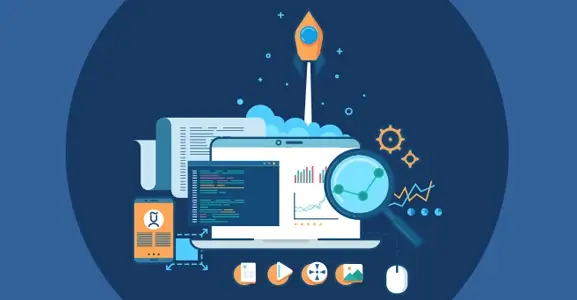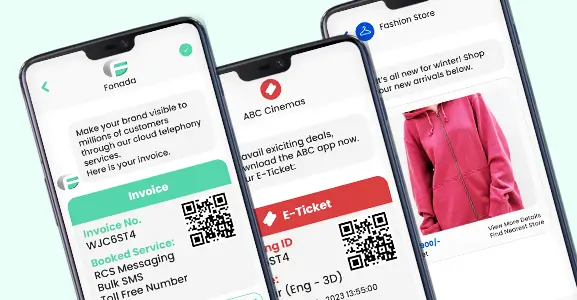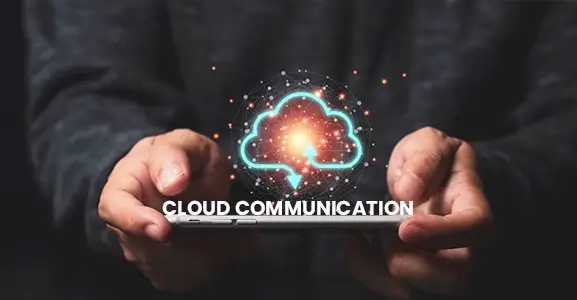The use of AI in chatbots has changed its role into one of the key tools in modern assistance strategies. AI technology helps businesses to scale up their support efforts and present 24/7 assistance so that human agents can devote their time and efforts to more delicate and complicated aspects.
Customers are more and more inclined to use chatbots for simple tasks. They can appreciate the fact that chatbots are available 24/7/365 and are highly efficient. But when it comes to complicated tasks or queries, people still demand to talk to a real person instead of relying on bots. This is where chatbots come into the picture, having natural language processing ability to carry on the conversation with customers.
Today’s advanced AI chatbots enable companies to integrate them into their existing system to work together with human support. Fonada’s AI chatbot solutions aim to simplify conversations across different channels, offering conversational AI customer service. This guarantees smooth handoff between bots and human agents, eventually energizing the whole customer experience.
What Are AI Chatbots?
AI chatbot is a type of computer software that can be used to greet, chat with, and help customers in a friendly manner. It can supply quick and personalized replies, suggest help center articles, and collect customer information through in-chat forms. Natural language processing (NLP) in chatbots like Fonada’s AI Chatbot allows them to understand and respond to conversations.
This means they can not only call agents when they have issues but also create and forward support tickets with all the required details to the right person. Chatbots can also suggest agents on how to respond to a certain request made by customers. They can be integrated into various messaging apps and channels to enable customers to get instant responses round-the-clock. Also, these AI bots are highly useful for facilitating AI marketing activities conducted by businesses to capture users’ interests and preferences.
How Does A Chatbot Work?
Working of a chatbot is a combination of predefined conversation flow, natural language processing, and machine learning, which gives precise answers to the user’s questions.
Functionality
Input: Chatbots are designed to respond to users in either text or voice. Also, they take input from humans in the same manner.
Processing: Chatbots process the user’s input using NPL, examine the text to determine the user’s requirements, and then furnish the corresponding information.
Logic and Data: Depending on the user’s input and the context of a conversation, the chatbot applies the logic and accesses relevant data sources (for example, a knowledge base or backend systems) to answer back.
Output: The chatbot formulates the response and delivers it to the user, either as text or speech.
Learning: The chatbot continuously adapts to its conversations and fine-tunes its responses and accuracy through the means of machine learning.
In general, chatbots operate by processing user input, applying logic and accessing data to create responses, and continually learning to boost their performance.
Why Add An AI Chatbot To Your Website?
Implementing an AI chatbot to your customer service line can positively affect your business. First of all, it gives you a chance to serve multiple customers at once, improve the efficiency of your assistance agents, and speed up the response time. By taking care of the queries that overflow your email and messaging channels, chatbots provide customers with a chance to resolve their problems quickly, with efficient solutions.
Besides removing many repetitive tasks from the support team, bots allow support agents to maximize their time on problem-solving and personal assistance. As a result, bots can fit into the support strategy, minimizing hiring and training costs for international operations.
Chatbots are inexpensive and are available 24/7; therefore, you can provide round-the-clock support even during weekends, holidays, and different time zones.
How Can An AI Chatbot Help Your Business?
Utilizing customer service AI bots gives businesses the opportunity to streamline their business communications. It helps them to offer instant customer support, increase engagement, and provide a better customer experience.
Here are some ways chatbots are highly efficient for businesses
Efficient Customer Support
Chatbots, also known as virtual chat assistants, are capable of processing various standard questions asked by humans. This frees up human agents to concentrate on taking care of complex issues and queries. It not only keeps the customers satisfied but also helps businesses to reduce support costs. Virtual customer assistants have the ability to result in up to 70% decrease in calls, chats, and emails related to queries and issues from customers.
Instant Assistance
Do your customers want immediate assistance with their questions and issues? Chatbots do this brilliantly!
Chatbots provide design assistance to customers for their queries in no time. Customers no longer need to wait on wait or read long chains of emails. This type of advance feedback not only increases customer satisfaction but also makes loyal customers.
Anticipate Customer Needs
Fueled with machine learning, chatbots may also be able to predict questions and provide customized responses. Proactive support provides high customer experience as well as satisfaction rates, which increases customer loyalty.
Cost Savings
Chatbots keep the cost low by offering customer support. Also, social media and chat support prove six times cheaper than voice interaction, therefore ultimately reducing the costs.
Enhanced Sales And Marketing
Chatbots aren’t only there to support. They also sell together with marketing teams and contribute to designing effective sales strategies. By 2025, 75% of B2B sales organizations are expected to use AI-guided selling solutions to supplement their sales playbooks; according to Gartner. It is clear now how significant chatbots are becoming as one of the revenue drivers in the market.
In general, implementing a chatbot service in your business is going to help you reduce costs while improving the quality of customer service.
How Do Customer Service Chatbots Use AI?
AI customer service chatbots leverage two key forms of AI: natural language processing (NLP) and machine learning (ML) technologies. NLP gives bots the ability to understand not only the customers’ usual queries but also slang, misspellings, and abbreviations, while ML allows them to improve their performance in the future.
AI Bot utilizes a very advanced deep learning model that can understand support tickets, fit answers to the questions asked, and then recommend help center articles. It is continuously learning from customer conversations that it refines its replies to be more relevant and personalized with every issue addressed. AI chatbots stand out best at the point where they have to make inferences from many customer service interactions logged in CRMs.
How AI-Powered Chatbots Can Transform Your Customer Service?
AI-powered chatbots are transforming customer service by using artificial intelligence to replicate human-like conversations.
Here’s how they streamline business communication.
Assisting Sales Process
Chatbots can help businesses with their selling process by answering customers’ queries related to products and services.
For example, if someone wants to buy software for their business, the chatbot can ask how many people will use the software and when they want to buy it. This helps the business know which sales team to send the customer to. Chatbots can also suggest products to customers based on what they’ve looked at or put in their online shopping cart.
Automating The Daily Tasks
Chatbots are trained to perform tasks that can normally be done by people in their daily routine like answering common queries of customers, setting up appointments, or booking hotel rooms.
For example, a chatbot can help a hotel chain by offering assistance with its online bookings. Website visitors can book a hotel room by asking when they want to stay, checking availability if rooms are available, and verifying the booking details. Chatbots can also take food orders or call a taxi for customers.
Resolving Customers’ Issues And Queries
Businesses often use chatbots to assist their customers with their queries and issues. These virtual assistants can fetch data from databases and give customers the answers they need. If a question is quite complicated for the chatbot, it can pass the customer to the most preferred agent who can help.
Multilingual Support
Chatbots can speak different languages and they can respond to customers in their preferred language, which means businesses can expand their reach and assist customers around the world. This makes it easier for customers to get support in their own language and helps businesses reach more people.
Enhancing Customer Interactions
Chatbots have their own memory which allows them to remember things about customers, like their questions or preferences. They use this information to give them better service.
For example, if a customer asks for a recommendation, the chatbot can suggest products based on what the customer wants and likes
24/7 Availability
AI chatbots can give immediate answers to customer questions whenever they occur, including during non-working hours. For example, a customer who wants to make a hotel reservation at night may get instant support from a chatbot, which will positively impact his experience and increase his chances of booking a room.
Things To Be Considered While Choosing AI Customer Service Chatbots Platform
When looking for a chatbot platform, it is critical to consider its core functionalities.
Channel Compatibility
Your chatbot platform should have all channel compatibility to facilitate smooth conversation. For instance, a chatbot deployed on websites, social media, and messaging apps such as Slack and Telegram guarantees continuous conversations from all the points customers contact the
brand.
Data Collection And Utilization
Ensure your selected chatbot platform can efficiently collect and mine essential customer data for personalized conversations. For example, Amazon’s chatbot keeps your preferences and purchase history in order to advise you when shopping. Integration with CRMs and other software allows one-to-one communication, including tailored offers based on the customer’s behavior.
Seamless Bot-To-Human Handoffs
The chatbot should allow seamless transition to live agents where the situation calls for it. For example, a banking chatbot can switch a customer to a live agent for complex financial advice with no difficulty in making a personalized and efficient service experience. This functionality takes away the frustration and increases the level of customer satisfaction.
Integration With Customer Service Platforms
The effectiveness of a chatbot is facilitated by its seamless integration with customer service systems. This can be seen in Fonada’s chatbot, which integrates with customer service software, auto-creating tickets and giving agents relevant data. This integration simplifies support processes, thus allowing the agents to handle issues more effectively.
Considering the above-mentioned functionalities and real-life cases helps you choose a chatbot platform that can match your expectations.
Benefits Of AI Chatbots For Customer Service
AI chatbots benefits include enhancing customer service, automating business operations and fostering loyalty.
Some of the prime benefits of AI Chatbots are given below:
Cost-Effective
AI customer service chatbots automate customer interactions and can deal with many queries at a time, which eliminates the role of human agents to some extent. This may result in huge expense reductions for companies.
For example, a company can employ chatbots to provide basic customer support so that human agents can specialize in more complicated and critical tasks.
Improved Efficiency
AI chatbots are able to respond to routine inquiries like tracking purchase status or supplying product details fast and correctly. This also relieves human agents of the more repetitive work, making the entire organization more efficient.
To illustrate, an e-commerce chatbot can help find products, place orders, and track shipments without human interaction.
Personalization
AI chatbots are designed using highly advanced algorithms and they have the ability to analyze user input and tailor the response to the clients based on the preferences and interaction history of the customer.
For example, a fashion retailer chatbot can make outfit recommendations based on its customer’s style preferences and purchase history, taking a more personalized approach to shopping.
Scalability
AI chatbots can easily deal with a large volume of customer inquiries without employing more staff. In this respect, they can be a good solution for those organizations which face unpredictable demand levels such as cases of sales or conversational marketing campaigns.
Data Collection And Analysis
AI chatbots are also capable of gathering and analyzing customer data, which cover customer preferences and shopping habits. This data can be very useful in refining products, services, and marketing campaigns. Considering food delivery service as an example, the chatbot of the service can collect feedback on food quality and delivery time, thus, the service can make amendments accordingly.
Reduced Response Time
AI virtual chat assistants provide customers with an instant response so that they do not need to wait for a long period to receive an answer. It aids in building customer relationship, loyalty and satisfaction.
For instance, in telecom, a chatbot can quickly help in solving common network-related issues without having customers wait for human agents on hold.
Consistent Customer Experience
AI chatbots ensure that every customer gets the same level of service without being affected by time or day.
For instance, a chatbot for a bank can provide 24/7 consistent and accurate information on account balances, transactions, and loan options.
In general, AI chatbots are the combination of several advantages that make customer service better, costs lower, and efficiency higher. Through AI technology utilization, companies can give improved customer care and simplify their operations.
Use Cases Of AI Chat-Bots
AI chatbots offer a broad range of applications across the different sectors, allowing companies to automate customer conversations, increase efficiency, and deliver higher quality of customer experience.
Customer Support
Customer service AI bots for chat are able to solve large amounts of customer queries in real time, thus liberating human agents for more complicated issues.
For instance, in the field of finance, banks apply chatbots to answer questions about account balance, transaction history, and general banking information.
E-Commerce
Chatbots can help consumers with product recommendations, order tracking, and answering their questions about products or services.
For example, retailers employ chatbots to guide customers through the shopping process and deliver tailored suggestions according to their tastes.
Lead Generation
Chatbots are capable of conversing with website visitors into sales. They are capable of estimating the quality of the lead and then capturing the necessary information for further contact and lead generation. For instance, real estate companies use chatbots to guide clients on how they can find a suitable house and schedule a viewing.
Appointment Scheduling
Chatbots allow users to check the availability of appointments and even book within real time. Healthcare professionals are using chatbots to book appointments, send notifications and provide initial health information.
Feedback Collection
The fact that chatbots can gather information from customers by means of surveys and polls helps companies to develop their products.
For example, restaurants use chatbots to collect feedback on customer experiences for further improvement.
Content Delivery
Chatbots are able to deliver personalized content that is based on the users’ preferences, habits and interactions. Media technologies use chatbots to suggest articles, videos, or podcasts to users depending on their interests.
How To Use AI Chatbots For Customer Service?
The use of AI chatbots in customer services could help improve operational efficiency, customer engagement and also save costs.
Identify Use Cases
Identify particular customer service activities you want your chatbot to perform like responding to FAQs, providing product information or processing simple transactions.
Example: With chatbots, Sephora customers can find products, book services, and learn about promos.
Choose A Platform
Choose a chatbot development platform that fits your needs and interacts with your existing systems.
Design Conversation Flows
Design conversation flows for the chatbot to allow it to effectively lead the users to solutions or escalate to the human agent when required.
Example: The Domino’s Pizza chatbot allows customers to place orders, track the delivery and even resolve issues.
Integrate With Existing Systems
Integrate the chatbot with your CRM, knowledge base, and other systems to get customer information and provide a personalized answer.
Example: Amtrak uses chatbots for its customers to book tickets, check the status of trains, and get travel info.
Implement Natural Language Processing (NLP)
Leverage NLP in building a chatbot that can understand and answer the customers’ queries in a natural way.
Example: Bank of America employs chatbots that respond to account inquiries, transaction history and branch locations.
Train The Chatbot
Train the chatbot with historic customer interactions in order to optimize its efficiency and precision as time passes.
Example: H&M chatbot assists customers with product suggestions, order tracking and returns.
Monitor And Optimize
Continuously monitor the chatbot’s performance, gather feedback, and make adjustments to improve efficiency and users’ pleasure.
Example: Nestle uses chatbots as a tool that provides nutritional information, recipes and product recommendations to their customers.
In summary, applying these measures and adopting real scenarios can help you achieve the goal of customer service satisfaction and contribute to business growth.
The Future Of AI Chatbots In Customer Service
The future of AI chatbots in customer service is poised for rapid growth and development. Here are some areas expected to experience significant expansion:
Personalization
Chatbots are continuously developing the ability to personalize interactions per customers’ preferences and historical data and thus improve user experience.
Advanced Multilingual Capabilities
AI chatbots are capable of providing easy multilingual service, overcoming language obstacles, and serving a variety of customer types. In the future, they will easily acquire highly advanced multilevel language capabilities and will be able to communicate with customers in a more personalized manner.
Emotional Intelligence
Incorporation of emotional intelligence algorithms will give chatbots the ability to understand, analyze and respond to customer emotions, and as a result, customers will get better empathetic interactions.
Omni-Channel Integration
Chatbots will fluidly function across different communication channels, helping to sustain support and develop omnichannel customer’ experiences.
Advanced Automation
Along with AI development will come more advanced automation features allowing chatbots to complete complicated queries and tasks with little or no human involvement.
Human Augmentation
Chatbots will be more and more just helpers of human agents, offering real-time information and support to increase the efficiency and productivity of the agents.
FAQs
AI chatbots utilize NLP (natural language processing) and AI (artificial intelligence) to comprehend and react to user inquiries. They analyze text input, determine user intents, and respond with suitable answers or actions.
AI chatbots give a round-the-clock service, quicker response times, less expenses, and scalability. They have the ability to take on repetitive queries, allow the human agents to focus on complex problems and provide continuous service.
AI chatbots are not replacing human agents, instead they are improving them. They do the repetitive jobs, which frees up agents to devote their attention to the tough ones that require kindness and human emotions.
As the first step, find out your customer service requirements, choose a chatbot platform, develop a knowledge base, train the chatbot, integrate it with other applications, and monitor its performance constantly.
AI chatbots are mainly utilized in answering FAQs, processing orders, providing product information, scheduling appointments, and responding to basic customer inquiries. In addition, they can gather feedback and tailor interactions.
Some famous AI chatbot platforms for customer service are Fonada’s AI Chatbots, IBM Watson Assistant, Google Dialog Flow, Microsoft Bot Framework, and Amazon Lex. Select an option depending on your needs and the budget.
For instance, the chatbot of Domino’s Pizza is used to order food. The chatbot allows the customers to interact by choosing the pizzas, topping them, and placing the order.

Dec 11, 2024
Top Contact Center Optimization Tools For 2024
“A thriving business knows how to fetch maximum output from limited resources by optimizing ca... Read More
Nov 13, 2024
What Is Brand Communication? CPaaS Role Explained
Did you ever wonder why some advertisements grab your attention instantly, while others do not? The... Read More
Nov 01, 2024
What Is Automated Messaging And How Does It Work?
Automated messaging or text automation empowers businesses and marketing professionals to connect wi... Read MoreLatest Updates
From Fonada
Industry Insights, Trends, Innovations, Updates, and Case Studies from Industry Experts
View
Customer
Reviews
Discover why our customers love us - read their authentic and heartfelt reviews!
View
Case
Studies
Explore real-life scenarios, offering analysis, and solutions to practical challenges
View
Convert Leads Into Sales With Fonada
Trusted CPaaS Solution Provider








